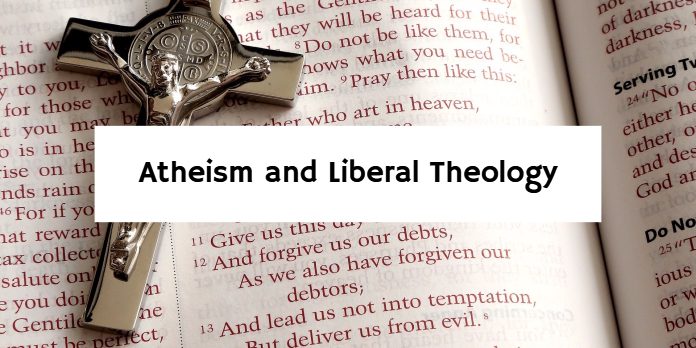Early on in my theological pilgrimage I was influenced by J. Gresham Machen, particularly his book Christianity and Liberalism. That book was published in the 1920s, during the struggles within northern Presbyterianism, between the adherents to the “old Princeton” theology and those who were advocating more liberal perspectives. Eventually Machen and his followers left to form a smaller, more conservative denomination.
I am not a Machenite in my views about denominational life. Fuller Seminary was founded by people who wanted evangelicals to work for renewal within the mainline churches, and that still strikes me as a legitimate project. But Machen’s strong opposition to liberal theology has stuck with me. To be sure, I try to add some nuances to the case he made. He insisted that theological liberalism is not Christianity; it is another religion. I prefer to focus more narrowly on theology rather than religion.
For example, one of Machen’s liberal opponents was the great preacher Harry Emerson Fosdick. I have read extensively in Fosdick’s writings, and have learned much from him. I believe he was a sincere follower of Christ. But I also believe that he departed so far from traditional Christian teachings in his theological formulations that his theology could not be called genuinely Christian. Some people are better Christians than their theology by itself would allow them to be. (And then there are those of us whose theology is much better than our personal “religion” would suggest!)
Anyway, I have been thinking much these days about Machen’s views, in the light of a current controversy in the Netherlands, focusing on the views of Klaas Hendrikse. In a book he published recently, Hendrikse has made it clear that he is an avowed atheist, What makes this significant is that he is also a pastor in the Protestant Church of the Netherlands, a body that was formed a few years ago by a union of two Reformed denominations and a Lutheran body.
Recently a regional assembly of that church had to decide what to do about Pastor Hendrikse. They decided to do nothing. While he is very explicit about his denial of God’s existence, they concluded, his views are not all that different from other liberal leaders in their church.
The denial of God’s existence is surely a theological move that takes someone outside of the Christian tradition. Yet a church body that has long tolerated liberal teachings cannot find it within itself to condemn such a departure. The reason for this reluctance is that once you have allowed significant departures from historic Christian teaching it is no longer clear where you draw the lines of acceptability. A denial of God’s existence, then, can be seen functionally equivalent to a denial of Christ’s divinity or of the necessity of the atoning work of the Cross.
Machen’s Christianity and Liberalism is still in print. I don’t know if it is available in a Dutch translation. If not, someone should be working on it. In any event, maybe it is time for a push to increase its sales in our own context!
3 Comments »
-
Similar happenings are already occurring here, with PCUSA Presbyteries ordaining pastors who don’t believe in the resurrection and the divinity of Jesus Christ.
Comment by Ann — February 14, 2010 @ 8:21 pm
-
To tell the truth, I’ve never really studied Fosdick especially much (I’m much more familiar with Machen). Most of what I know about Fosdick comes not from his own work, but from his opponents. Basically, my theological education re: Fosdick has consisted almost entirely of folks telling me how terrible and “liberal” (where “liberal” itself is clearly meant derogatorily) he was.
I find myself wanting to question that knee-jerk assessment. I’ve read (in the little free time I’ve had) one of his sermons, where I at least can glean that he was trying to take the advances of scientific study (as it was in his time) seriously, and that’s something I clearly agree with (as, I think, most of my more conservative counterparts would, as well). I’d appreciate more specifics about what it is about his theology that is so objectionable.
Comment by Mark Baker-Wright — February 15, 2010 @ 10:12 am
-
Thank you for your irenic posting, “Atheism and Liberal Theology.” I was particularly moved by your insight, “Some people are better Christians than their theology by itself would allow them to be. (And then there are those of us whose theology is much better than our personal “religion” would suggest!”
I, too, have been influenced by Machen and Fosdick; I find their Christ-likeness influential.
You inject grace into the currents and flows of theological discussion. Thank you.
Comment by Joseph Cejka — February 16, 2010 @ 12:08 pm






























